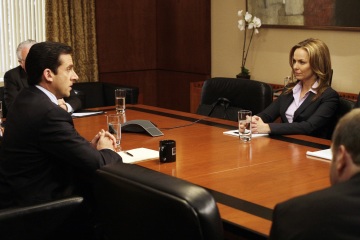Have you received a notice by the insurance carrier stating that they want to depose you and ask you questions? What is a deposition? Many of our clients come to us asking for us to represent them when they’ve been mailed a Notice of Deposition. We have helped thousands of injured workers navigate their deposition and their workers’ compensation case.

So what exactly is a deposition?
A deposition is simply a tool used by insurance carriers to obtain relevant information about your case. The main purpose of a deposition is for a defense attorney to ask you questions about things related to your injury. For example, they will ask you questions about any prior injuries that you’ve had on the job or off the job; they will want to know about places where you’ve gone to obtain medical treatment for your injuries in the past; they will ask you about your current symptoms and how your present workers’ compensation injury impacts your ability to do your regular activities such as household chores, cooking, taking walks, etc.
So how does a deposition actually take place?
Basically, you will arrive to our office an hour before your deposition and you’ll meet with one of our lawyers. We’ll spend an hour preparing you for the deposition and we’ll go over what to expect, the questions you may be asked by the defense attorney, and go over some of the ground rules. After we adequately prepare you, the court reporter will come into the room and so will the defense attorney. You’ll then be sworn-in as a witness and the defense attorney will start to ask you questions. The court reporter will type every question and answer and will put it in a booklet. Meanwhile, your Franco Munoz law firm attorney will be by your side the entire deposition making sure that the defense attorney is asking appropriate questions. If your attorney does not like the question being asked then they can make an objection to the question. Be assured that your Franco Munoz workers’ compensation attorney will be overseeing the questions asked by the insurance company’s lawyer.
Remember, the testimony that you provide in a deposition will have the same effect as if you’re in a court of law. So it will be very important that you pay attention to the questions being asked of you. It will be important for you to try to give your best answer but you should avoid any guessing or speculating. The defense attorney is entitled to your best estimate so it will be good for you to recall any relevant dates, names of doctors, names of hospitals, and prior incidents that may be asked.

Also, throughout the deposition if you ever need a moment to take a break because you feel pain or you need to use the restroom, feel free to tell your lawyer and we’ll request for a break. Generally speaking, after an hour, either the defense attorney, court reporter, or your lawyer will ask for a restroom break. But it’s important to know that a deposition is not a race and not meant for you to answer questions while under pressure or physical pain so if you ever need to take a break during a deposition just tell your lawyer.
On average, most depositions last about 2-3 hours but depending on the facts particular to your case, a deposition can be done over 2-3 days if it’s necessary.
Finally, we get asked often. Do you have any advice for the deposition, attorney?
And our best advice is for you to LISTEN to the question being asked and to ONLY answer the question being asked (unless your attorney instructs you to not to answer). In addition, we advise you to tell the truth and nothing but the truth. If you follow these two general pieces of advice, you’ll have a successful deposition. I agree that it’s very simple advice but something we constantly tell our clients so as long as you remember these two principles, you’ll do fine.
If you have any questions about your deposition or wish to discuss your case with one of our workers’ compensation lawyers, feel free to give us a call at (510) 257-4141. Our Oakland-based workers’ compensation attorneys have handled cases throughout the Bay Area – everywhere from San Jose, San Francisco, Oakland, Daly City, Hayward, Concord and throughout the region. Do not hesitate to call us and we’ll happily provide a free consultation!







